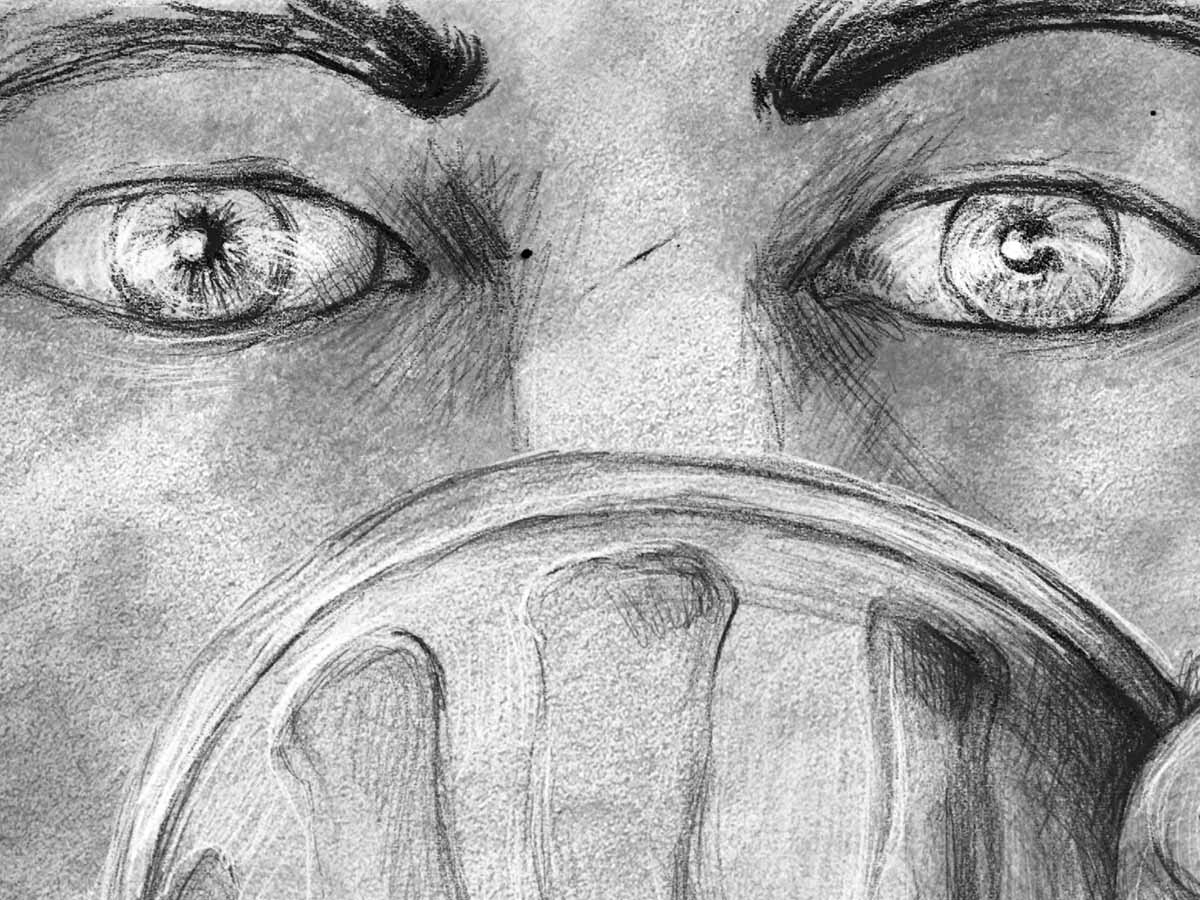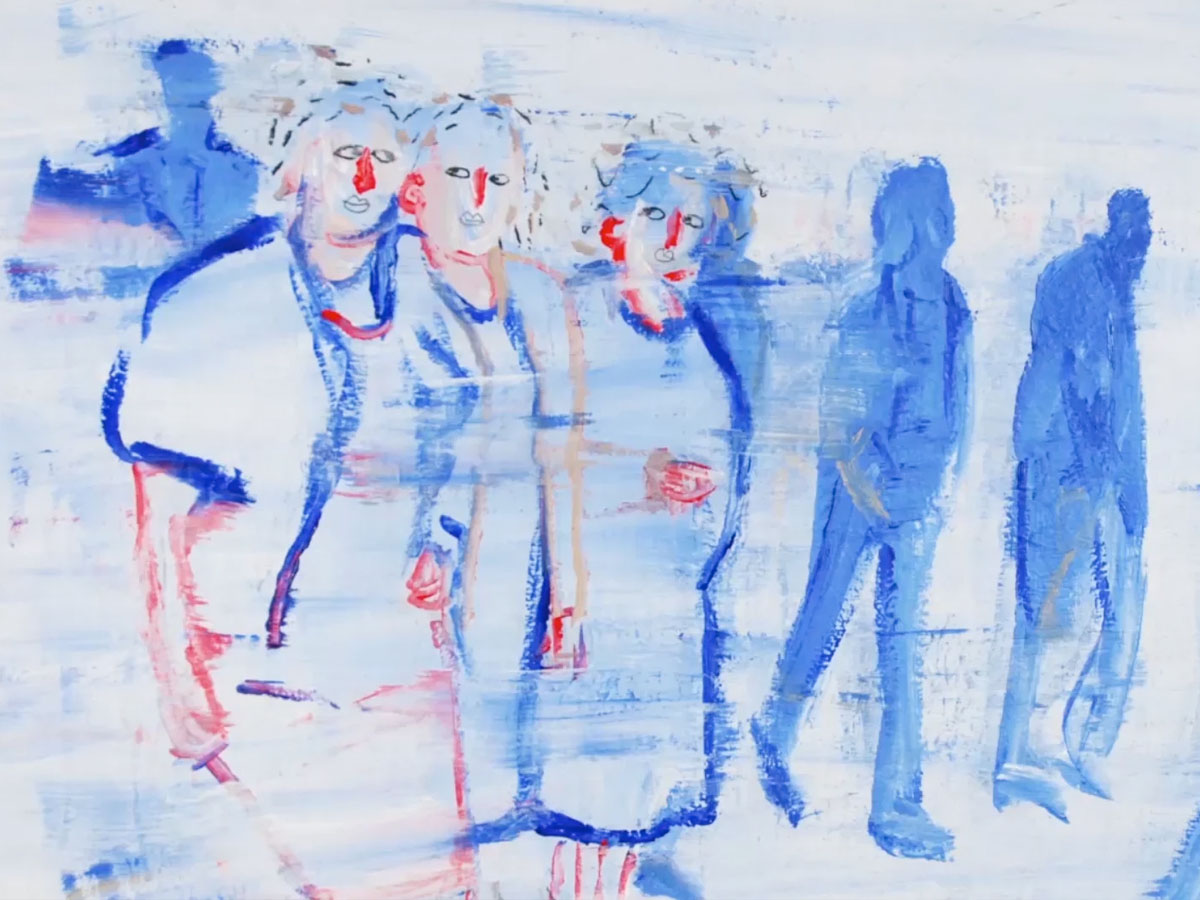
Moi
In a binary universe, a man must hide his true feelings and dance, dance, until he has the courage to defy the norms and reveal who he really is.
“In her films, Inès Sedan consistently develops a more-than-realistic character, space, and movement design with mixed 3D, digital-cut, and hand-made animation techniques. They read as connected chapters in an ever-evolving story of desire, self-awareness, and empowerment. The structure of Moi resembles a courting ritual, which both reinforces and is constrained by the patterns of heteronormativity. But that’s just at the surface.
Opening with a dynamically stitched montage, the film closely focuses on a couple that faces each other in suspense at opposite sides of a table. A clock is ticking, and when the time comes, the woman enters the man’s body; now, he is ready to join a crowd. The appearances of these masses perfectly duplicate the looks of the couple. This fantasy of devouring the loved one seems disturbing and possessive at first, but soon enough, it reveals itself as a metaphor for being painfully closeted. The whirling world of the couple becomes a stage. Men wear suits and bowler hats, and women in fine dresses and high heels perform a quadrille-like dance, careful not to trespass the borders of gender difference. To no avail.
The old-school, refined dancing leads the characters to sexually referential images anyway. In the blink of an eye, we comprehend this is actually a story of affirming an inner drag, breaking patterns of a performed ritual, and finding others to unite with on the basis of non-conformity. The couple navigates on the thin red line between simplification and simple beauty. Sedan successfully shows the path of an unstoppable transition.” — Olga Bobrowska
Olga Boborwska picked Moi in response to Lisa Fosters Back and Forth. Bobrowska, PhD, is a scholar on animated film, Assistant Professor at the Institute of Journalism and International Relations in Kraków, and festival director of StopTrik International Film Festival. She authored two monographs on Chinese animated film and co-edited the books Obsession, Perversion, Rebellion. Twisted Dreams of Central European Animation (2016), and Propaganda, Ideology, Animation. Twisted Dreams of History (2019). She is a permanent contributor of Zippy Frames.
We all have a different rhythm. This film is a dance about individual rhythms that go together, seem to clash, or just stay separate.



